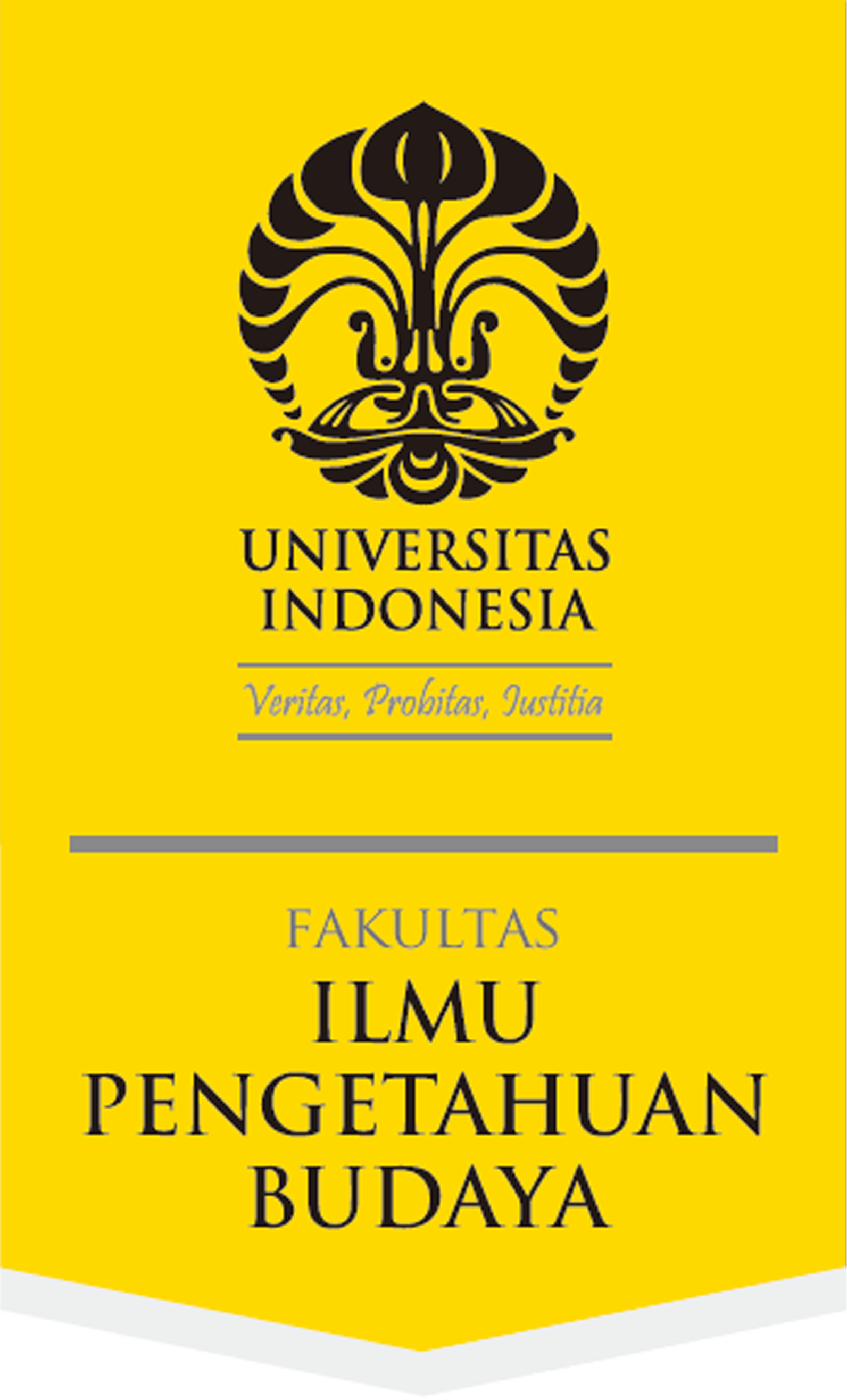Abstract
At a very young age children living in Jakarta use both Colloquial Jakarta Indonesia and Bahasa Indonesia. The children's first and most used language is Colloquial Jakarta Indonesia. In the formal school setting Bahasa Indonesia is frequently used and stimulated on a daily basis, and the learning process of Bahasa Indonesia is accelerated. The question addressed in this article is: how do these children choose from their repertoire of language varieties at this stage of language development? In our study 63 children (aged three to five), were interviewed in a formal and an informal situation in three playgroups and kindergartens. This study shows that even in the preschool setting, young children are already developing their sociolinguistic competence, knowing when to choose which language variety.
References
Alwi, H., et al. 2000. Tata Bahasa Baku Bahasa Indonesia. Edisi Ketiga. Jakarta: Balai Pustaka.
Arka, I.W. 2013. “Language management and minority language maintenance in (eastern) Indonesia; Strategic issue”, Language Documentation and Conservation 7: 74-105.
Chesterfield, R., et al. 1983. “The influence of teachers and peer on second language acquisition in bilingual preschool program”, TESOL Quarterly 17(3): 401-419.
Coupland, N. 2011. “The sociolinguistics of style”, in: R. Mesthrie (ed.), The Cambridge Handbook of Sociolinguistics, pp.138-156. Cambridge: Cambridge University Press.
Da Silva, Anna Marietta. 2013. “The English borrowings and the IndonesianEnglish code-switching in two collections of blog short stories”, Kata Vol.15 No.1 (June): 9-18.
Ervin-Tripp, S. 1991. “Play in language development”, in: B. Scales, M. Almy, A. Nicolopolou, and S.M. Ervin-Tripp (eds), Play and the social context of development in early care and education, pp. 84-98. New York: Columbia Teachers College.
Gertner, B. L., M. L. Rice, and P. A. Hadley. 1994. “Influence of communicative competence on peer influence in preschool classroom”, Journal of Speech and Hearing Research 37: 913-923.
Grijns, C.D. 1981. “Jakartan speech and Takdir Alisjahbana’s plea for the simple Indonesian word-form”, in: N. Phillips and K. Anwar (eds), Papers on Indonesian Language and Literature, pp. 1-34. London: Indonesian Etymological Project.
Gunarwan, A. 1984. A sociolinguistic study of grammatical variation in Indonesian. PhD thesis, Georgetown University, Washington DC.
Justice, L.M., et al. 2011. “Peer effect in preschool classroom; Is children’s language growth associated with their classmates’ skills?”, Child Development 82(6): 1768-1777.
Kamus Besar Bahasa Indonesia. 2008. Kamus Besar Bahasa Indonesia. Compiled and edited by Tim Redaksi KBBI-Pusat Bahasa. Jakarta: Gramedia Pustaka Utama dan Pusat Bahasa Departemen Pendidikan Nasional RI.
Kridalaksana, H. 2010. Masa-masa awal Bahasa Indonesia. Depok: Laboratorium Leksikologi dan Leksikografi, Fakultas Ilmu Pengetahuan Budaya Universitas Indonesia.
Kushartanti, B. 2009. “Strategi kesantunan bahasa pada anak-anak usia prasekolah: mengungkapkan keinginan”, Linguistik Indonesia 27 (2): 257-270.
Kushartanti, B. 2014a. The acquisition of stylistic variation by Jakarta Indonesian children. Utrecht: LOT.
Kushartanti, B. 2014b. “Kesantunan untuk anak-anak; Apa yang baik menurut orang dewasa di Jabodetabek?”, in: B. Kushartanti, M.S. Pattinasarany, Y.P. Anabel, N.S. Wrihatni, and R.N. Pramanik (eds), Prosiding Seminar Internasional Semiotik, Pragmatik, dan Kebudayaan; Peran Semiotik dan Pragmatik dalam memaknai kebudayaan global dan lokal, pp. 180-197. Depok: Departemen Linguistik, Fakultas Ilmu Pengetahuan Budaya Universitas Indonesia.
Kushartanti, B., et al. 2010. “Parents’ language use and language attitude towards languages in Jakarta as part of language acquisition process”. [Paper, Seminar Hasil Penelitian Kolaboratif Indonesia Goes International (IGI), Universitas Indonesia, Depok, 15 December.]
Labov, W. 1964. “Stages in the acquisition of Standard English”, in: R. Shuy, A. Davis, and R. Hogan (eds), Social dialects and language learning; Proceeding of the Bloomington, Indiana Conference, pp. 77–104. Champaign, IL: National Council of Teachers of English.
Labov,W. 2001. Principles of linguistic change. Vol. 2: Social factors. Oxford and Massachusetts: Blackwell.
Lauder, A. 2008. “The status and function of English in Indonesia; A review of key factors”, Makara; Sosial Humaniora Vol.12 No.1 (July): 9-20.
Muhadjir. 2000. Bahasa Betawi; Sejarah dan perkembangannya. Jakarta: Yayasan Obor.
Nababan, P.W.J. 1992. Survei kedwibahasaan di Indonesia. Jakarta: Pusat Pembinaan dan Pengembangan Bahasa, Departemen Pendidikan dan Kebudayaan.
Oetomo, D. 1990. ”The Bahasa Indonesia of the middle class”, Prisma; The Indonesian Indicator 50 (September): 68-79.
Payne, A. 1980. “Factors controlling the acquisition of the Philadelphia dialect by out-of state children”, in: W. Labov (ed.), Locating language in time and space, pp. 143-178. New York: Academic Press.
Purwo, B. K. 1997. “Ihwal bahasa baku tak baku; Bahasa yang baik dan tidak benar?”, Atma nan Jaya 10 (3): 49-63.
Romaine, S. 1984. The language of children and adolescent; The acquistion of communicative competence. Oxford: Blackwell.
Schleppegrell, M. J. 2001. “Linguistic features of the language of schooling”, Linguistics and Education 12 (4): 431–459.
Smith-Hefner, N. 2007. “Youth language, Gaul Sociability, and the new Indonesian middle-class”, Journal of Linguistic Anthropology 17(2): 184-203.
Sneddon, J. 2003. “Diglossia in Indonesian”, Bijdragen tot de Taal-Land-en Volkenkude 159(4): 519-549.
Sneddon, J. 2004. “The sociolinguistic nature of Indonesian today”, in: K.E. Sukamto (ed.), Menabur benih menuai kasih; Persembahan karya bahasa, sosial, dan budaya untuk Anton M. Moeliono pada ulang tahunnya yang ke-75, pp. 33- 51. Jakarta: Universitas Katolik Indonesia Atma Jaya dan Yayasan Obor.
Sneddon, J. 2006. Colloquial Jakartan Indonesian. Canberra: Pacific Linguistics.
Soedirja, Soerjadi. 2000. “Peranan Bahasa dan Sastra Daerah dalam Pelaksanaan Otonomi“. [Paper, Konferensi Bahasa Daerah, Jakarta, 6-8 November.]
Tilden, K.E.R. 1985. Sociolinguistic aspects of Jakarta dialect switching in Bahasa Indonesia in eight Indonesian novels. PhD thesis, University of Michigan.
Wouk, F. 1989. The impact of discourse on grammar; Verb morphology in spoken Jakarta Indonesian. PhD thesis, University of California, Los Angeles.
Wouk, F. 1999. “Dialect contact and koineization in Jakarta, Indonesia”, Language Sciences 21: 61-86.
Recommended Citation
Kushartanti, Bernadette; Van de Velde, Hans; and Everaert, Martin
(2015)
"Children's use of Bahasa Indonesia in Jakarta kindergartens,"
Wacana, Journal of the Humanities of Indonesia: Vol. 16:
No.
1, Article 8.
DOI: 10.17510/wjhi.v16i1.371
Available at:
https://scholarhub.ui.ac.id/wacana/vol16/iss1/8









